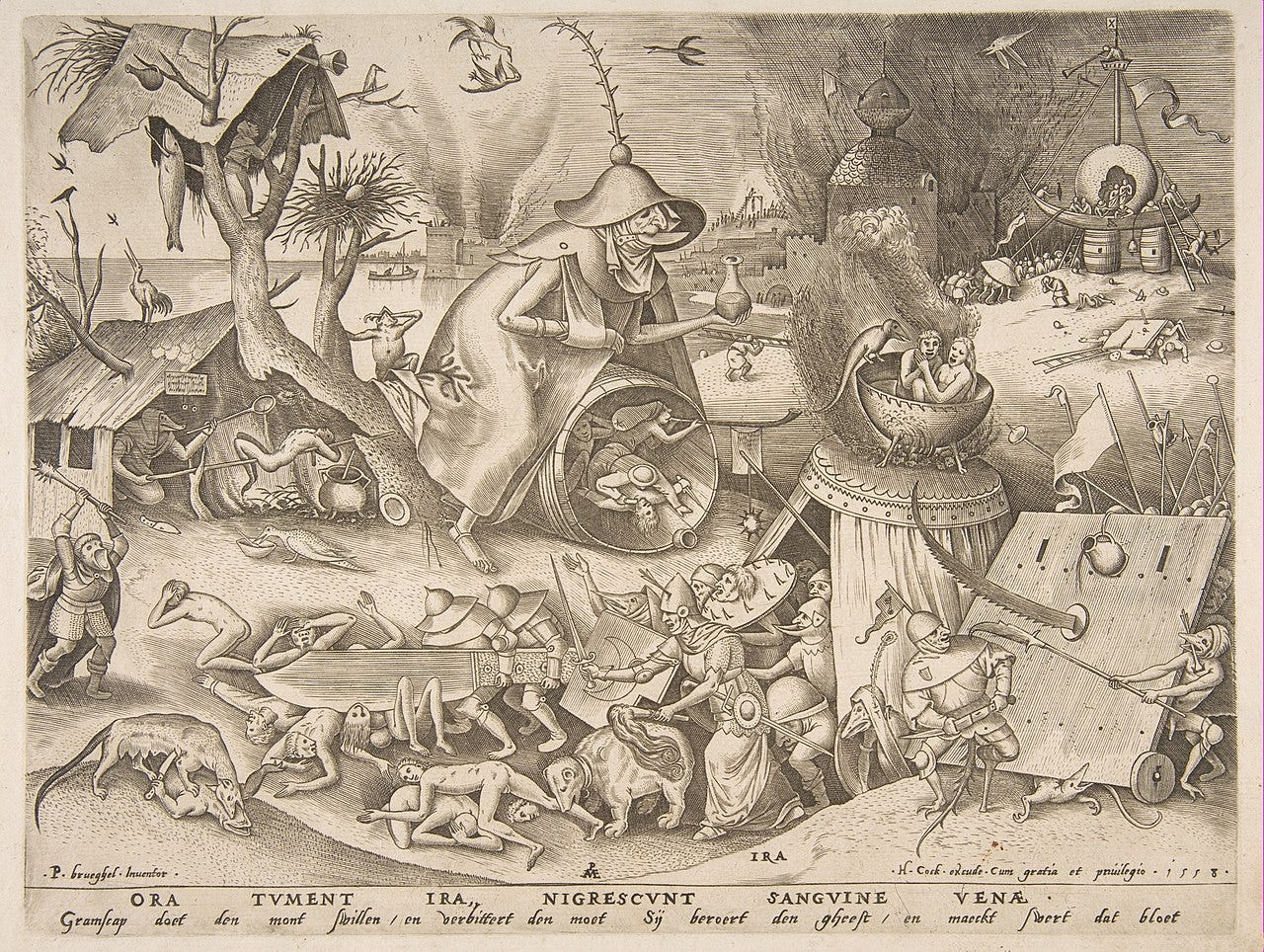The Heavy Burden of Anger
You can’t function while carrying a grievance

“There is no more stupefying thing than anger, nothing more bent on its own strength. If successful, none more arrogant, if foiled, none more insane—since it’s not driven back by weariness even in defeat, when fortune removes its adversary it turns its teeth on itself.”
— Seneca, c. 42
It’s so easy to get worked up and wallow in a grievance.
A perceived slight, unfair advantage, or other complaint, real or imagined, can consume us if we allow it.
Consider Aesop’s fable about The Oxen and the Wheels.
A pair of Oxen were drawing a heavily loaded wagon along a miry country road. They had to use all their strength to pull the wagon, but they did not complain.
The Wheels of the wagon were of a different sort. Though the task they had to do was very light compared with that of the Oxen, they creaked and groaned at every turn. The poor Oxen, pulling with all t…



